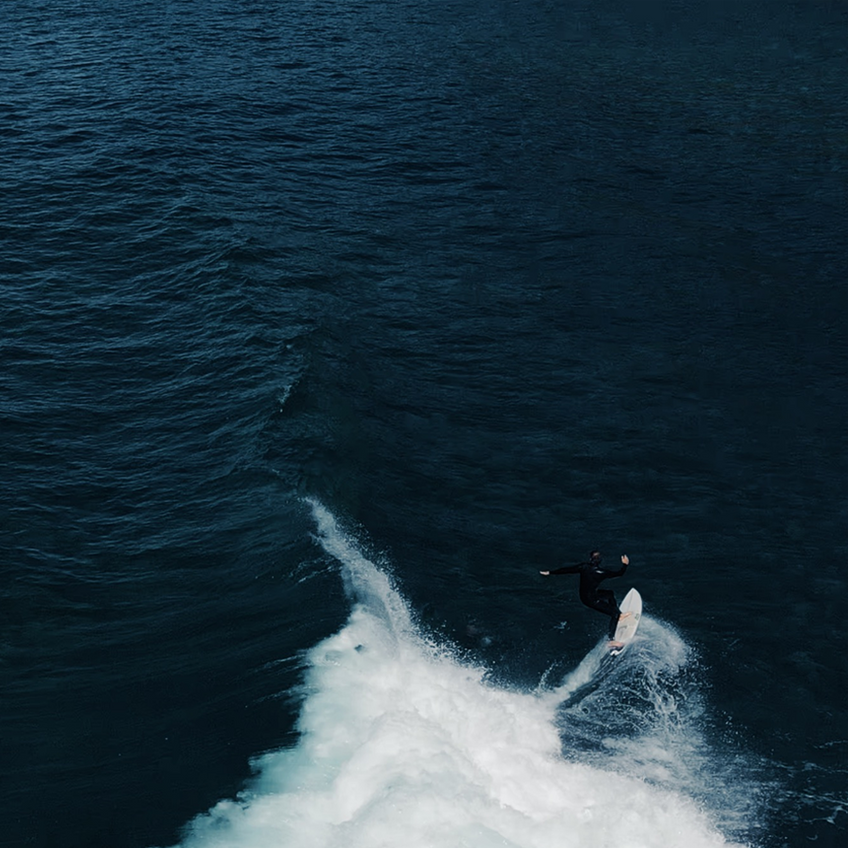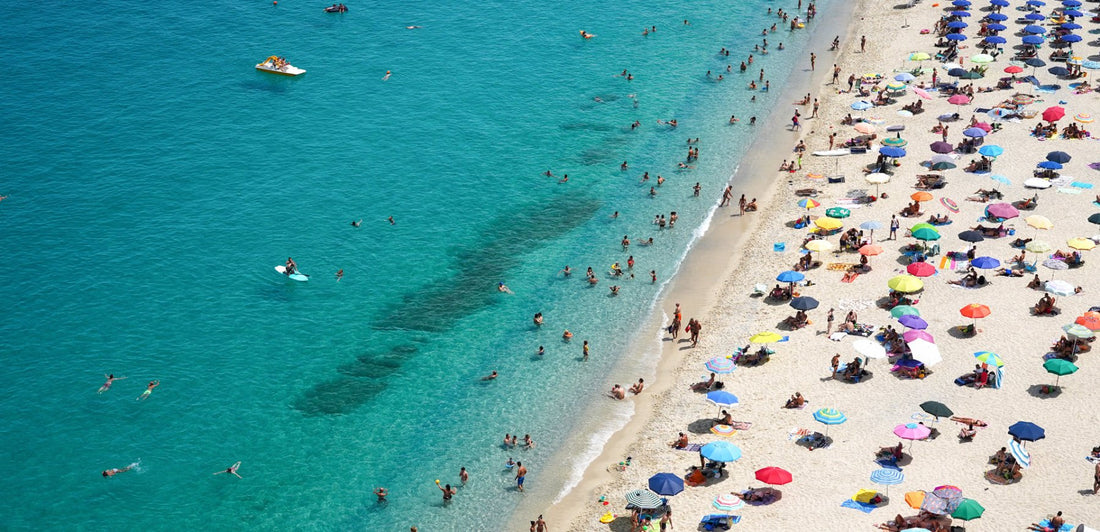Are you busy packing ahead of your dream summer vacation? Wondering which products should make the cut? We’re here to help, with this handy guide of non-eco products to avoid at all costs. Afterall, the last thing you want to do is have your sustainable beach towel, eco-friendly bikini, and ethical swimsuit all ready, only to ruin your eco-conscious suitcase with less-than-green products.
Sunscreen With Chemical UV Filters
We are constantly told that it’s good to use sunscreen. For our skin, this is very much the case. Overexposure to the sun has long been proven to be the cause of many health complications. However, that very same sunscreen that protects your skin can also do quite the opposite for our beloved ocean, with the main issue being the chemical UV filters that are used in many of the most popular sunscreens. It’s time to put on your new sustainable bikini or eco-friendly swim shorts, and slip-slap-slop using what’s known as reef-safe sunscreen.

According to savethereef.org these are the chemicals you should look to avoid when purchasing sunscreen:
- Octinoxate
- Octocrylene
- Oxybenzone
- Homosalate
- 4-methylbenzylidene camphor
- PABA
- Parabens
- Triclosan
- Any nanoparticles or “nano-sized” zinc or titanium
- Any form of microplastic, such as exfoliating beads
But what’s the alternative you might ask? Should I just burn to a crisp or avoid the sun altogether? Thankfully, no. Equally effective at protecting your skin from harmful UV rays and protecting the ocean are sunscreens that come with physical UV blockers. These usually include zinc oxide or titanium dioxide.

Depending on where you travel to this summer, packing ocean-friendly sunscreen alongside your sustainable boardshorts or ethical bikini might be the difference between you being given access to a beach or not. In island communities like Hawaii and Aruba the use of chemical sunscreens has been banned altogether.
Poor Quality, Synthetic Swimwear
If you’ve spent any time around our TWOTHIRDS ocean community, you’ll know that we’re advocates for slow fashion swimwear, especially when eco-friendly bikinis and sustainable swimsuits are made from recycled ocean impact plastic. This is the case for virtually every piece of TWOTHIRDS sustainable swimwear, with even our ethical towels being crafted from similar recycled materials.

Unfortunately, the same is not true of all swimwear and beachwear brands, many of which use cheap virgin synthetic materials to churn out low quality, poorly designed swimwear that lasts for no more than one holiday. Remember feeling a little dead inside after you last unboxed a batch of soulless fast fashion? Don’t put yourself through that again, both for your sake and for that of the ocean.
Single-Use Plastic Bottles, Packaging, Coffee Cups
Living a sustainable lifestyle is difficult enough in the comfort of your own home and regular routine, but trying to maintain it during a holiday can be even tougher. The best way to avoid having to fall back on single-use plastic is to be prepared. This can come in the form of packing a reusable coffee cup, a reusable water bottle, and booking restaurants ahead of time to avoid having to order packaging-laden takeaways.

Non-Biodegradable Wet Wipes
Anyone who has ever travelled with children will know that wet wipes can be a godsend, especially when you are on the move or in a non-child-friendly tourist destination. Unfortunately many wet wipes do not live up to their bio degradability claims, especially those made from plastics or viscose. Opt instead for wipes made from bamboo or plant-based fibres, which are more likely to be biodegradable and harbour less chemicals, but will still get that pesky stain out of your favourite sustainable dress or eco-friendly skirt.

Synthetic Souvenirs
This last one is controversial. Souvenirs are not something you’re likely to pack to go on holiday with. More likely they are the useless trinkets that will make it impossible to close your suitcase on your return journey. Let’s face it, we’ve all given and received a tacky gift or two, rather than that sustainable towel or eco bikini we really wanted.
The key to good souvenir shopping is to only buy gifts like sustainable t-shirts or ethical dresses that were locally made, and which therefore benefit local communities. This usually means shunning plastics or products that clearly have no deep rooted connection to the coastal community they’re sold in. You should also ask yourself: does mum really need another fridge magnet or garden gnome?








